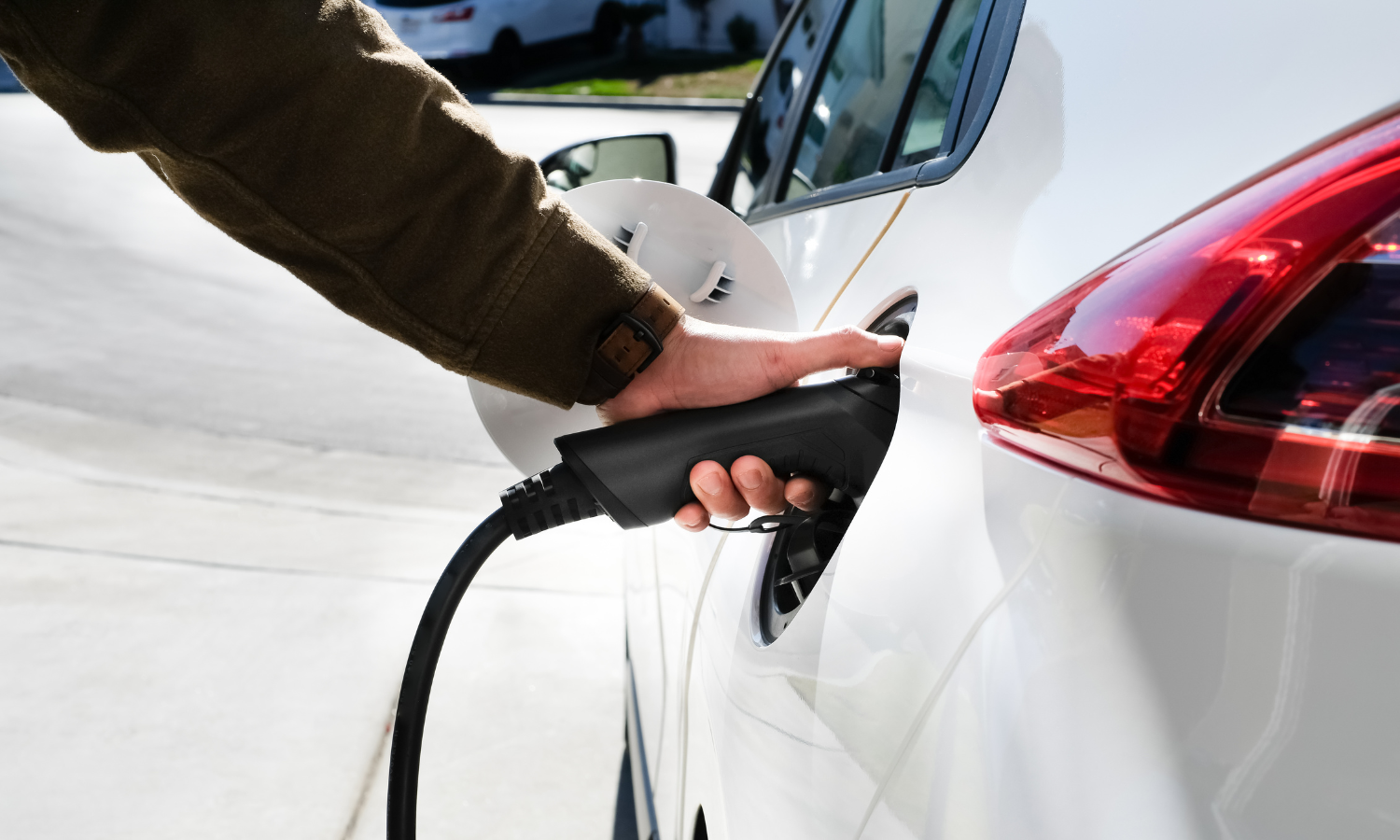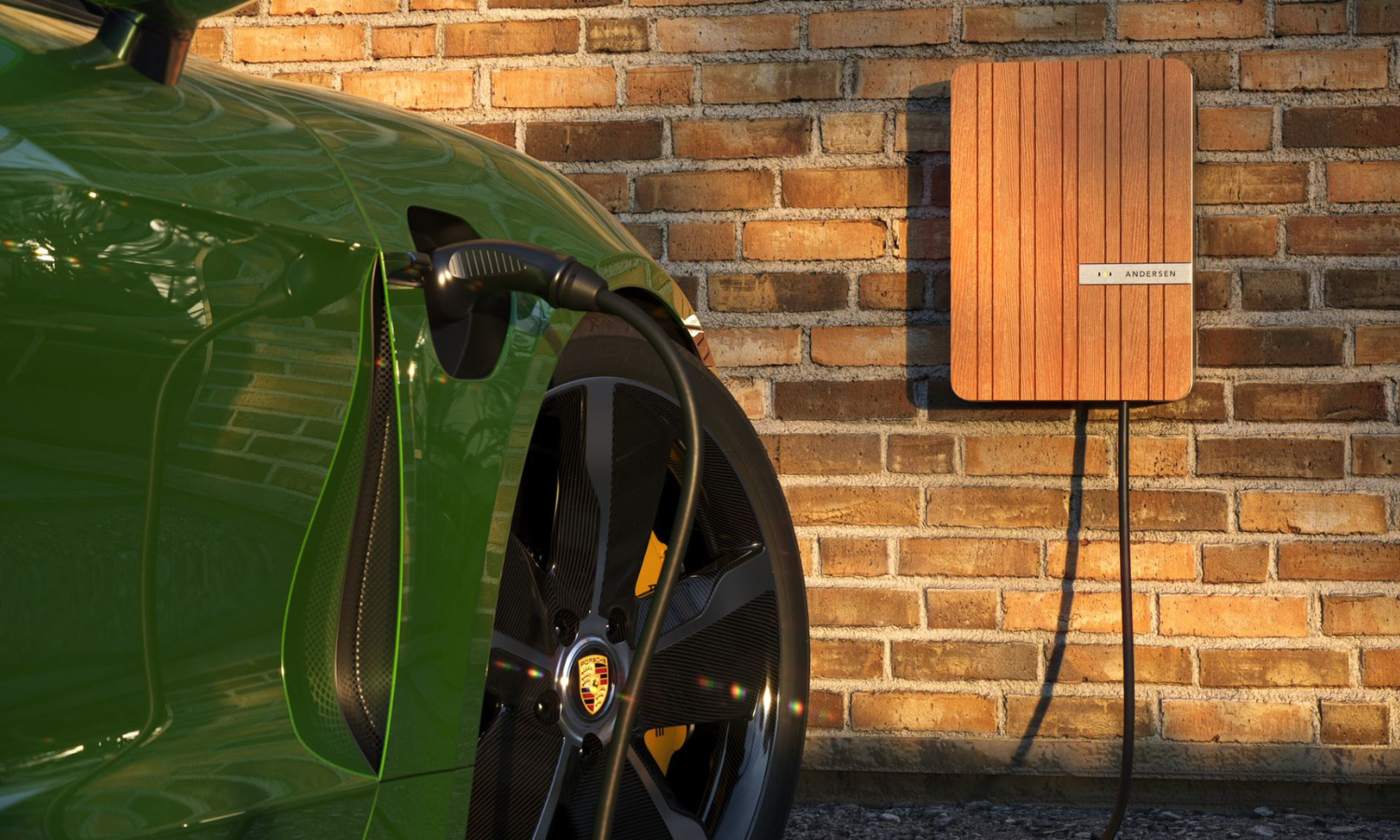Are you shopping around for a home EV charging point? Have you encountered the terms ‘smart charging’ and ‘smart charger’ and are wondering what they mean? Then keep reading and find the answers you’re looking for in this guide from the Andersen EV team…
Smart charging: a definition
So, what exactly is ‘smart charging’ and how does it differ from other forms of charging?
The easiest way to explain is via an example.
Consider a battery-powered device such as a digital camera. When it’s time to charge up the camera’s battery, you’ll remove it from the camera, insert it into a charger and then plug the charger into the wall. Once you flick the switch on the plug socket, the battery will begin to draw electrical charge from the charger pack.
And, that’s it. The battery will continue to draw charge until it is fully recharged.
The only way you can modify the charging behaviour is by either turning the current on or off manually via the switch on the power socket.
Now, contrast this to smart charging.
Smart charging - especially in the example of EV charging - basically involves an advanced level of control over how and when the charger draws power from your home’s electricity grid.
With a ‘smart’ home EV charger, you can introduce settings that automate charging activity e.g. setting the charging point to charge up your EV at set times of day (for example, at night when electricity tariffs will be lower).
In other words, smart charging represents a much more advanced, intelligent form of charging.

Do home EV chargers have to be smart?
Today, nearly every EV charger available for the home has at least some form of smart charging capability.
This is due to a piece of legislation that was passed in 2021 - The Electric Vehicles (Smart Charge Points) Regulations 2021. This stipulated that all EV charging points intended for the private charging of electric vehicles need to be capable of ‘smart charging’.
These regulations mandate that private home EV charging points must include:
- Smart functionality, including the ability to send and receive information, the ability to respond to signals to increase the rate or time at which electricity flows through the charge point, demand side response services and a user interface.
- Electricity supplier interoperability, allowing the charge point to retain smart functionality even if the owner switches electricity provider.
- Continued charging even if the charge point ceases to be connected to a communications network.
- Safety provisions, preventing the user from carrying out an operation which could risk the health or safety of a person.
- A measuring system, to measure or calculate the electricity imported or exported and the time charging lasts, with visibility to the owner of this information.
- Security requirements consistent with the existing cybersecurity standard ETSI EN 303 645.
What are the benefits of smart EV chargers?
Smart EV chargers provide a wealth of benefits to their owners. These benefits include:
- Greater control over charging - provide greater visibility over the use and cost of charging activity.
- Cost savings - by allowing owners to pre-select the times of day at which charging activity occurs, they can avoid charging during those times of day when electricity tariffs are at their highest.
- Eco-friendly - when used in conjunction with certain electricity suppliers and tariffs, smart EV chargers can allow you to charge during those periods when there is the most renewable energy available on the grid.
- Greater security - smart home EV chargers also have the benefit of being highly secure, allowing you to remotely lock and unlock the charging point and control who has access to it.

What to look for in a smart home EV charging point
When it comes to selecting a home EV charge point that’s truly ‘smart’, there are a number of features you should look for. We’ve detailed these features below.
Full control with Wi-Fi connectivity
In today’s digitally-connected world, a smart EV charger with Wi-Fi connectivity is a must.
Wi-Fi connectivity provides a number of benefits. Firstly, with wireless connectivity, it’s possible for the manufacturer of an EV charger to remotely diagnose any issues with the charging point based on real-time data.
With Wi-Fi connectivity, a smart EV charger will also be able to receive what are known as ‘O-T-A’ (over the air) updates. This means the charger’s software can be automatically updated remotely, and doesn’t require a technician to visit and do this manually.
Scheduled charging
An absolutely essential feature to look for in a smart EV charger is the ability to set scheduled charging times.
Scheduled charging allows you to set the times of day at which the charger will activate and start charging up your EV’s battery. This means you can set the charger to provide enough charge in time for your commute to work, to charge overnight (when electricity rates are cheaper) and much more.
Scheduled charging also has the benefit of allowing you to ‘set and forget’. You can set your scheduled charging times and simply plug your car in when you're home and it’ll automatically begin charging at your pre-selected time.
Aside from convenience, the main benefit of scheduled charging is the ability to save significant amounts of money on your electricity bill.
Charge reporting
Another feature we see as a ‘must have’ is charge reporting.
With charge reporting, a smart EV charger will provide you with a completely transparent view of your historic charging activity. This can help you identify potentially cost savings and/or identify suboptimal charging behaviour.
Solar compatibility
Solar compatibility is a must-have for any eco-conscious homeowner. A smart charger with solar compatibility will be able to integrate with the solar panels on the roof of your home and effectively charge your car for ‘free’.
Mobile app
Any smart EV charger worth its salt should include a smartphone app. A good, well-thought-out app (such as Andersen EV’s Kønnect app) will provide you with real-time control over the charge point, access to live stats, and an array of other features (such as being able to set charging times, and lock or unlock the charge point).
Desired charge level
Another feature that can be handy to have in a smart charging point is the ability to set your desired charge level.
Many EV manufacturers such as Kia recommend that you avoid charging your EV’s battery to 100% (as this can diminish the battery’s lifespan). Instead, you should aim to keep your battery between 20 to 80%.
Buying a home EV charge point with a ‘desired charge level’ function will allow you to more easily achieve this.
Charge-by time
Want to make sure that your EV has sufficient charge by a specific time? Then you’ll want to invest in a home EV charge point that has a ‘charge-by time’ feature.
This will allow you to set an ‘end time’ for your charging, allowing you to effectively plan your day.
Safety features
Aside from the above ‘functional’ features, there are a few important safety features to look for in a quality smart EV charge point.
Remote locking
If you’re going to be out working at the office all day or spending your leisure time away from home, the last thing you want is someone using your charge point to top up their car at the expense of your wallet!
That’s why it’s a good idea to look for smart chargers that are lockable. What’s more, the very best smart charge points allow you to lock and unlock the charger via a smartphone app. With such a feature, you’ll be able to grant friends and family access to the charge point even if you’re not physically present.
Load limiting
A key feature that sets smart EV chargers apart from their ‘dumb’ counterparts of old is load limiting.
Load limiting (or load management as it’s also known) is a sophisticated system that has been designed to address a common issue in residential and commercial properties; the overloading of power.
Essentially, back in the day a dumb charger with no load limiting would not be able to balance the amount of electricity it drew from a property’s network. In scenarios where a lot of electricity is being used, the combined power demand could result in the overload of a property’s power supply, leading to voltage fluctuations and disruptions.
A smart EV charger with load limiting, on the other hand, is able to actively monitor the available power capacity and only draw electricity when it is safe to do so.

Want a truly smart EV charge point?
Then you’ll want the Andersen A2. As the UK’s only premium home charging solution, the A2 is packed with smart charging features and technology.
It also includes Andersen EV’s renowned Kønnect app which provides you with a stunning level of control over, and insight into, your charging activity.
Find out more about the Andersen A2 now
For more home EV charging information, insights and advice, read the Andersen EV blog…
The Benefits of Installing an EV Charger at Home | The Most Common Electric Car Myths | How Much Does It Cost to Install an EV Charger at Home?










Leave a comment
This site is protected by reCAPTCHA and the Google Privacy Policy and Terms of Service apply.